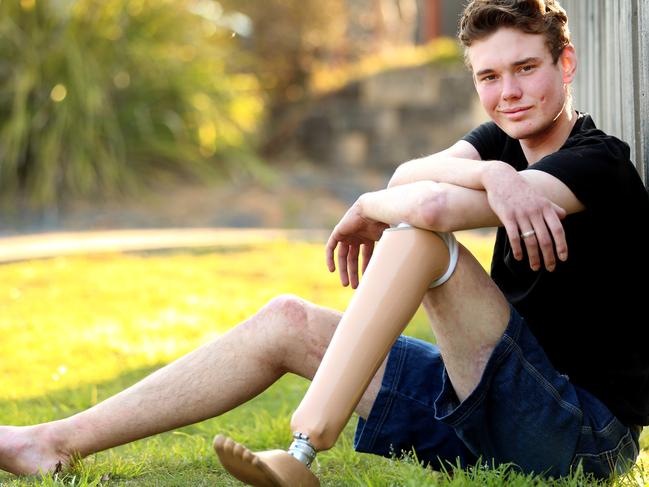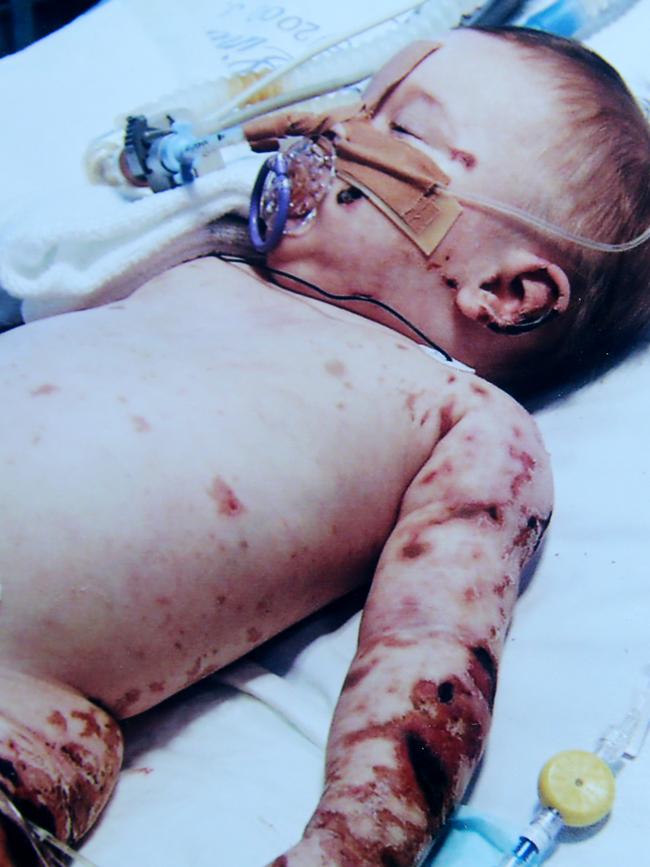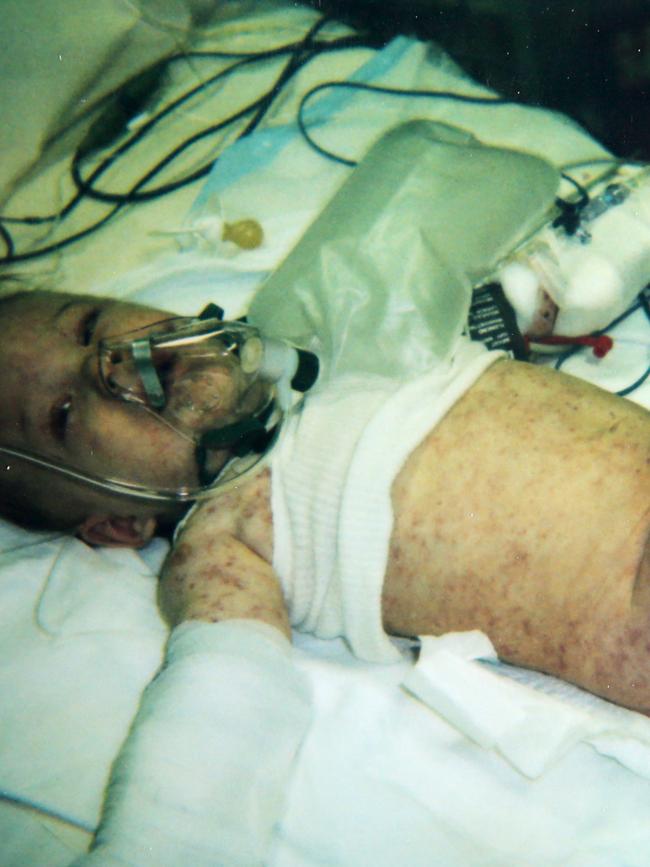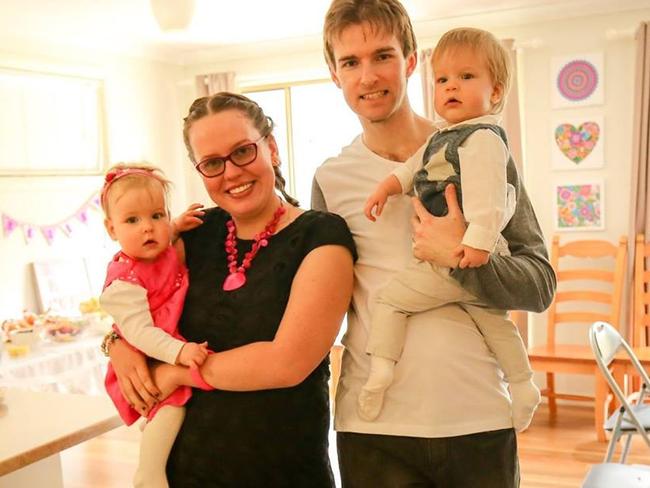Plea for free jabs to protect against deadly meningococcal B
IT is the stark reality behind what medications get the taxpayer dollars to save lives and those that don’t. The economics of affordability is this: dollars divided by saved lives. And it’s the reason why vaccinations for the deadly B strain of meningococcal disease, which struck Thorn Pochyly as a baby, are not free.

NSW
Don't miss out on the headlines from NSW. Followed categories will be added to My News.
KYLIE Pochyly hasn’t added up exactly how much her son’s disabilities have cost, but she thinks it’s thousands of times more than the $500 required to vaccinate against the meningococcal B strain.
Thorn, now 17, succumbed to the devastating bacteria as a baby. He was not expected to survive, but he lost his left foot, part of his ear and his right thumb. He also needed skin grafts on his arms and legs. He was tube fed for 10 years, has learning difficulties and needed a kidney transplant at age 10 as well as prosthesis.

MORE FROM JANE HANSEN
SIX NEWBORN BABIES INFECTED BY ‘SUPERBUG”
DOCTOR FUNDS OWN RESEARCH TO SAVE HIS DAUGHTER
“What meningococcal leaves behind is just horrible and he says ‘mum, I was born normal’ and it breaks my heart,” the Coffs Harbour mum said.
What irks her today is that kids can be protected with a vaccine for meningococcal B, but unlike the other strains A, C, W, and Y which are provided free in school programs, or by the National Immunisation Program, parents have to pay for B it and can costs up to $500 for a full course (two to three injections depending on age).
“If you’ve had it, you can still get it again and I have not go the money to vaccinate Thorn,” the single mum said of a reality facing many parents.
Only those who can afford the B vaccine, can be protected from the strain that consistently accounts for around half of all cases.
South Australia made the decision to fund the B vaccine in July after the Meningococcal B Expert Working Group recommended it “would prevent approximately 12 cases of serogroup B invasive meningococcal disease annually and one death every two years.” From October 1, it will be freely available to all babies over six weeks of age.


In NSW this year, there have been 17 cases of B strain compared with 10 W, 9 Y strain and 1 C strain.
“It just should be available Australia wide,” Ms Pochyly said.
Sarah Watson from Newcastle recently paid $600 to cover her two-year-old twins Belle and Charlie.
“I think the whole of Australia should have access to it, it’s not fair, it is a lot of money,” the 29-year-old said.
Tasmanian Erica Burleigh lost her eyesight to Meningococcal B 18 years ago and created the Make Meningococcal B Free campaign off the back of the South Australian move.
“If families are unable to afford to vaccinate for B, it can have devastating consequences,” Ms Burleigh, 35, said.

The Pharmaceutical Advisory Committee has knocked back GSK’s Bexsero because it found the cost — $400 million to vaccinate over 4 million children and adolescents — would only “prevent 224 cases of invasive meningococcal disease”.
Eliza Ault-Connell from Meningococcal Australia, who lost her legs and most of her fingers to the B-strain 21 years ago, said the states can act independently.
“As we have seen from South Australia, they have the power to implement a state-based program if there is a need and we have to ask both NSW and Queensland if they are watching and listening and are they prepared to act?” she said.
NSW currently funds a $17 million program to the NSW Meningococcal W Response Program.
Madeleine Breckon, spokeswoman from GSK confirmed the company had met with NSW authorities.
“In the last 12 months we have had meetings in all states, covering topics including immunisation against meningococcal B disease,” she said.
GSK are also awaiting the results of a study in South Australia of 60,000 high school students vaccinated against meningococcal B-strain before they reapply to PBAC.
